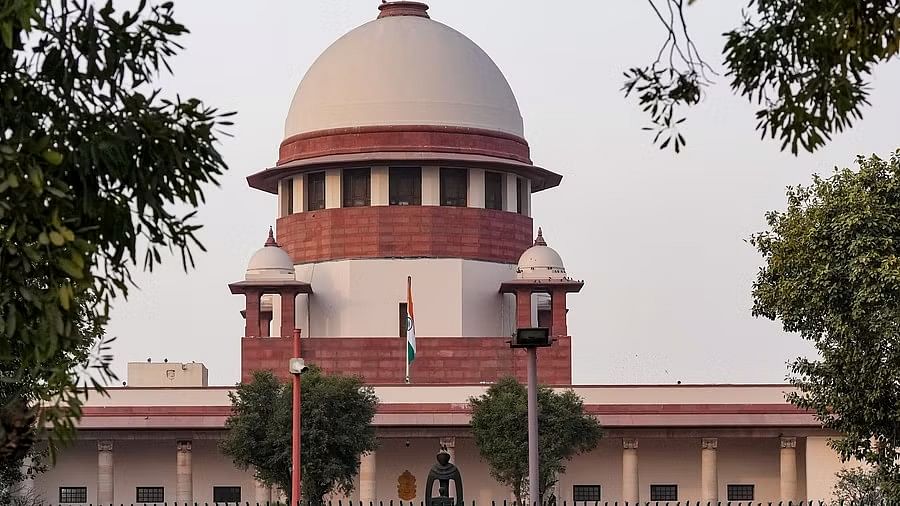
The Supreme Court of India.
Credit: PTI File Photo
New Delhi: The Supreme Court on Wednesday said the federal balance lies not on the recognition that the Constitution grants Parliament predominant legislative power but on the identification of the scope of such predominance.
While upholding the power of states to impose tax on all kinds of alcohol, including the industrial alcohol, a nine-judge bench led by Chief Justice of India D Y Chandrachud said it is crucial to note the difference between ‘overlap’ and ‘conflict’ between the legislative competence of Parliament and state legislatures.
"An overlap occurs when two or more things or fields partially intersect. However, a conflict occurs when two or more entries operate in the exactly same field. Courts while dealing with an overlap of legislative entries must endeavour to diminish the overlap and not enhance it by including it in the field of conflict. The federal supremacy accorded to Parliament ticks in at the stage of ‘conflict’," the judgment authored by the CJI said.
The court emphasised the principle of federal supremacy in Article 246 can be resorted to only when there is an ‘irreconcilable direct conflict’ between the entries in List I and List II.
"When there is a conflict between an entry in List I and entry in List II which is not ‘capable of reconciliation’, the power of Parliament to legislate with respect to a field covered by List I must supersede the exercise of power by the State legislature to that extent," the bench said.
In case of a seeming conflict between the entries in the two lists, the bench said, the entries must be read together without giving a narrow and restricted meaning to either of the entries in the Lists; and if the entries cannot be reconciled by giving a wide meaning, it must be determined if they can be reconciled by giving the entries a narrower meaning.
In its decision, the bench held Parliament does not have the legislative competence to enact a law taking control of the industry of intoxicating liquor covered by Entry 8 of List II in exercise of the power under Article 246 read with Entry 52 of List I.
